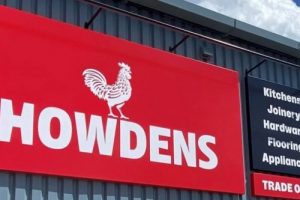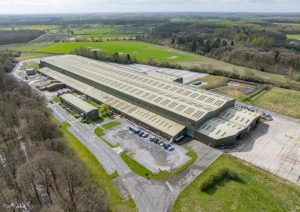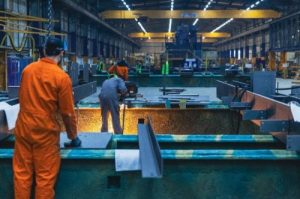Manufacturers show confidence with growth plans

THE majority of manufacturing firms in the Leeds City Region who attended a keynote event say they are planning to invest for growth this year.
Nearly every firm at the Leeds Manufacturing breakfast seminar this week admitted that they have growth plans in 2011.
While pressures such as regulation and the skills gap are a continuing problem for manufacturing companies, management from firms including Mitsubishi Power Systems Europe, Group Rhodes, Thorite and Airedale International all said that market conditions are improving and they are focused on taking advantage of growing opportunities.
Leeds Manufacturers: Surviving and Thriving in a Competitive Environment was organised by Leeds Manufacturing in partnership with sponsors Santander Corporate Banking, Clarion Solicitors and Deloitte, who hosted the breakfast on the 10th floor of its offices at No 1 City Square.
Tom Riordan, Leeds City Council chief executive, told manufacturers that they have a bigger role than ever to play in the success of the region, particularly with the launch of the Local Enterprise Partnership.
He said: “We are at the start of a new era in which business and economic growth will be self-starting and business-led. The message from the LEP is to lose the politics and concentrate on jobs and investment.
“Let’s do some myth-busting: manufacturing makes a major contribution to the economy of Leeds and the wider city region and is critically important for the economy going forward.”
Mark Ridgway, managing director of Wakefield-based Group Rhodes and a member of the Leeds City Region LEP board said:
“55.4% of GDP in the region is public sector – that’s the second highest in England. A key issue is how the LEP can link in with national bodies and organisations to leverage their influence to support investment and economic growth.”
Andy Tuscher, regional director of the EEF, the manufacturers’ organisation, gave the audience an overview of the region’s economy.
“Economic conditions are improving but there is still a lot of uncertainty. The situation in Japan has had a detrimental effect on manufacturing firms but Japanese firms are now looking to broaden their supply chains so this will present opportunities.
“Feedback from our members is that export levels are strong and cash flow is positive but finance for growth is too expensive. The biggest issues though are around skills: finding the right person to do the job,” added Mr Tuscher.
His views were backed by Clive Parkman, managing director of £40m turnover air-conditioning manufacturer Airedale International.
Mr Parkman said that the market is “buoyant”. The group employs 450 people and its main requirement is a high skills base.
“This is where we see the main difficulty and we’re taking it into our own hands with our new training centre but it is a challenge to get the right people, particularly graduates. Infrastructure is also a major issue, particularly for companies located in West Leeds.”
Paul Stephens, chief economic development officer at Leeds City Council, said that the city has invested in road infrastructure including the East Leeds Link Road opening up development land in the Aire Valley and completion of the inner ring road.
“But we recognise that infrastructure remains a challenge as it does for all major cities in the UK and in Europe,” he said.
Howard Pickard, who took part in a panel question and answer session, is managing director of LBBC Technologies and the fifth generation of his family to run the Pudsey firm, which was founded in 1876 and makes specialist products including submarine hatches.
He told the audience that there are growing opportunities in its markets and it is looking to invest this year.
Mr Tuscher said that his organisation’s dealings with the Government showed that politicians see the boost that manufacturing can give the UK economy.
“The love affair with the City has gone. If you talk to anyone in government or the three main political parties, they will talk about the importance of manufacturing in re-stimulating the economy.”
Sam Moss of Leeds Brewery asked the panel what message the loss of historic brewing giant Tetleys from Leeds sends out about manufacturing in the city region.
Mr Stephens, of Leeds City Council, said : “We regret the loss of Tetleys and in particular the loss of those jobs but, ultimately, we have to accept that it is part of the process of reinvigorating the economy and don’t think that in the long term it will have a hugely detrimental effect on the Leeds brand or manufacturing in Leeds.
Mr Pickard agreed and said: “Tetleys is a mass market brand at the whims of global economy and global management but its demise represents opportunities as well, particularly for niche manufacturers.”








